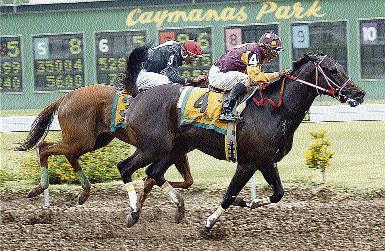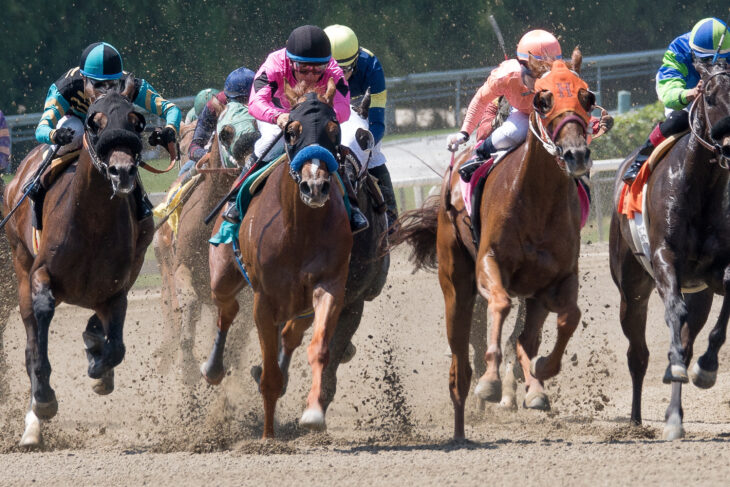
Sunday, November 16, 1997; June 14, 1998 and May 10, 2015 are dates that all local football fans should have indelibly imprinted on their minds. The nil all draw versus Mexico at the National Stadium on November 16, 1997, marked an iconic moment in Jamaica’s football as the country became the first English-speaking Caribbean nation to qualify for the International Federation of Association Football (FIFA) World Cup
As a passionate football observer, I distinctly remember June 14, 1998, when Portuguese referee Vitor Melo Pereira blew his whistle inside the Stade Felix-Bollaert in Lens, France, to signal the start of Jamaica’s first World Cup game, against Croatia. This will remain one my most unforgettable sporting moments.
Events on Sunday, May 10, 2015, have, however, conspired to make it extremely difficult to replicate the historic achievement.
The constitution of the Jamaica Football Federation (JFF) was amended at a JFF Congress in Hanover, and while most of the amendments were insignificant, the amendment regarding the number of delegates eligible to vote for the JFF president was notable. Prior to the amendment, approximately 130 delegates/football stakeholders were eligible to vote to elect the JFF president. The change, which is still in effect, now allows only the 13 parish presidents voting rights in selecting the JFF president.
I was horrified that the delegates had allowed the ‘garrisonization’ of Jamaica’s football, as reducing the voting pools to parish presidents meant that it was unlikely that the next, or any future president, would be elected outside of that very small pool. The Kingston and St Andrew Football Association (KSAFA), led then by Ambassador Stewart Stephenson, was the only dissenting voice to the horrendous decision.
The delegates, who voted at that meeting, were probably caught in an ethical dilemma, as by 2015 most parish/confederation football competitions were/had been sponsored by The Captain’s Bakery. KSAFA competitions were, coincidentally, the only ones that did not benefit from The Captain’s Bakery’s islandwide football sponsorship.
The late Captain Horace Burrell was both the owner of The Captain’s Bakery and the president of the JFF during this sponsorship bonanza.
While the reasons for Jamaica’s inability to repeat its 1998 historic feat are numerous — no strategic planning, lack of investment in infrastructure, neglect of youth football, no focus on having a cadre of globally qualified coaches at all levels, internal bickering and a divided Federation, especially during the Creston Boxhill era; — the ‘garrisonization’ of Jamaica’s football on that fateful Mother’s Day was the proverbial nail in the coffin for the sport locally.
Captain Burrell’s untimely death in 2017 made my worst local football nightmare a reality. A new president would have to complete the two years left on the Captain’s term, and Clarendon Football Association president Michael Ricketts was selected by his peers to complete the two-year term. Despite monumental failures — The Under-15 team missing the Confederation of North, Central America and Caribbean Association Football (CONCACAF) Championships because of late visa application, The Reggae Girls World Cup payment and accreditation debacle, among other embarrassing actions and comments — he was again unanimously selected in 2019 by his peers to lead Jamaica’s football for another four years. If the overwhelming majority of Jamaica’s football voting delegates believe Michael Ricketts is the best person to lead our football at this time, it is obvious that 20 St. Lucia Avenue, New Kingston (home of the JFF), has now joined the long list of corporate area garrisons — constituencies in Jamaica that vote for one particular political party regardless of the MP’s performance. These constituencies are among the most socially depraved although in some instances they have voted for one particular party for 40 consecutive years.
Jamaica’s football is now at a crossroads. An expanded World Cup in 2026, which may allow up to six teams from CONCACAF to qualify, must be the medium-term goal for Jamaica. The long-term goal must be to improve, specifically: the football infrastructure, having globally-qualified coaches at all levels, increase management capacity/capabilities within the Federation and clubs, prioritizing of player development and integrated approach to the marketing/sponsorship of the game.
Is the JFF equipped with the visionaries, technical capacity and management skills with a keen knowledge of the regional and global game to develop and execute a strategic plan to meet these objectives? Is there a chance that Donald Trump will switch to the Democrats for the next election? The latter is more likely!
Leadership within the JFF and at the club level will need a paradigm shift in mindset, both on and off the field, as Jamaica risks missing the expanded 2026 World Cup ship, which will likely be docked in CONCACAF waters. The United States, Canada and Mexico have put together an innovative tripartite bid for the event, and based on the reverberation felt across FIFA the last time the USA lost a WC bid, it’s hardly unlikely that this bid will be unsuccessful. FIFA had, in January 2017, voted unanimously to expand the FIFA World Cup to a 48-team competition as of the 2026 edition.
Representatives from FIFA visited Jamaica in March 2020 and mandated constitutional changes to the JFF statutes to address the governance issues that have retarded the growth of Jamaica’s football for the past two decades. I am afraid however, that these changes in isolation will do little to make the quantum leap that is required at this time to rescue Jamaica’s football. The time has long passed for a comprehensive assessment of the total football product locally and strategic decisions taken as to the optimal path to continued growth and development for our football and footballers.
“Where do we go from here? Is it here, there or nowhere?” Asked Peter Tosh in Come Together, from his Grammy-winning album, No Nuclear War. I have found myself asking this question with increasing regularity over the past two years as it relates to Jamaica’s football. Sadly, “nowhere” is the only answer the JFF has provided during that time.
If Jamaica fails to qualify for the 2022 WC, it would have been six WCs and 24 years since our sole qualification. Japan, who were also first-time qualifiers in 1998, have qualified for all 5 WCs held since then.
My plan therefore, will not follow the proven path to non-qualification, which primarily entails continuously scouting players globally during or near to WC qualifiers while ignoring the development of youth football. The opportunities and threats of the global and regional football situation, coupled with the strength and weaknesses of Jamaica’s economy, footballers and football management, were largely used to inform the way forward:
(In the next edition: My recommendations)




A very objective and well thought out analysis that should be carefully examined within the context of a system clearly broken… your solution to ungarrison the existing model of the sport’s governance model is equally as thoughtful and coupled with your other basic and obvious suggestions around the development of the sport especially at the junior levels over the next 10 years is scientific and baxked by comparative testing and shows great care and strategy in approach. Mr X you should lend your voice to the broken system